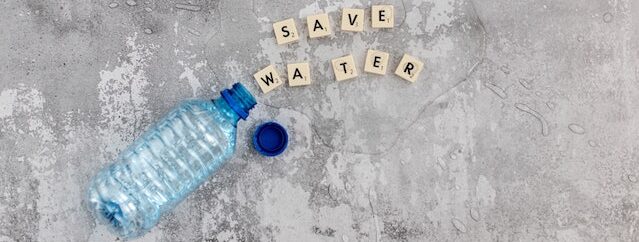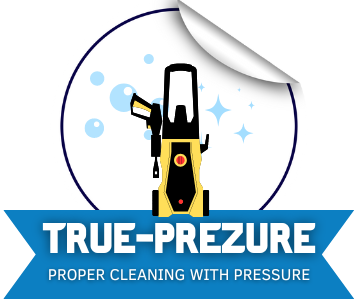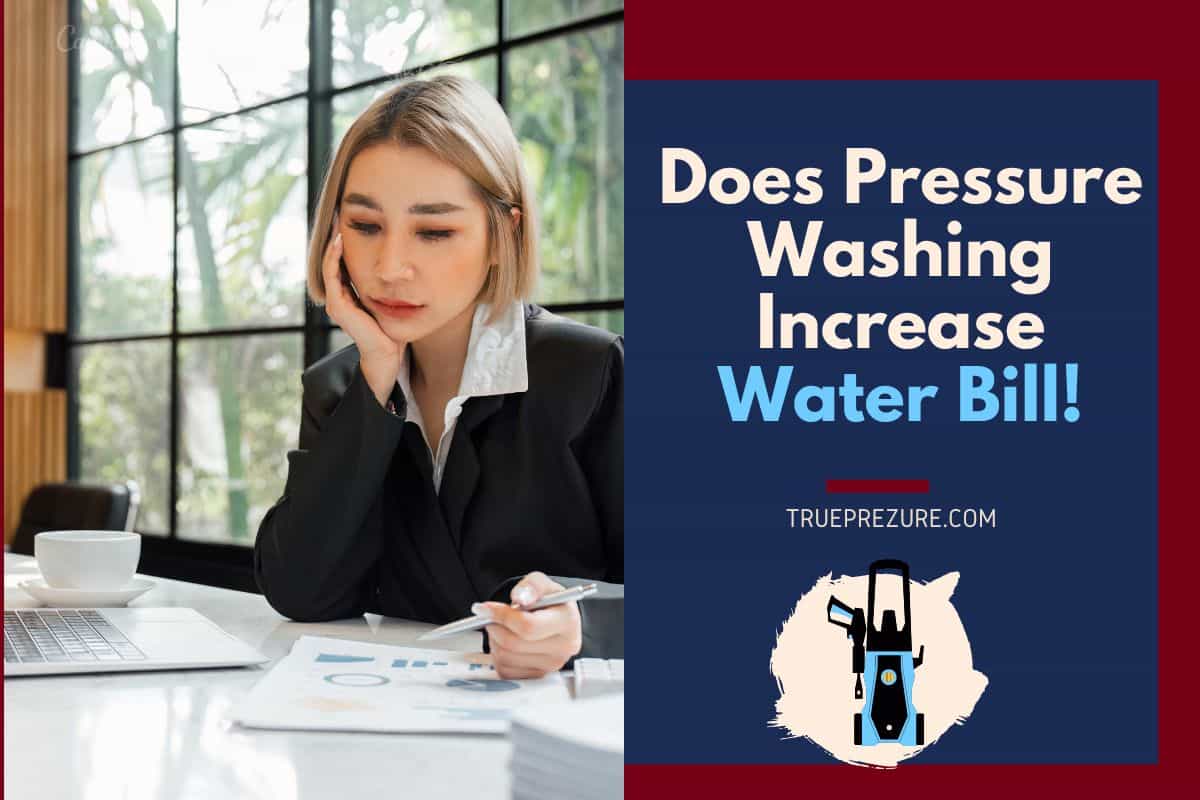Are you worried about the impact of pressure washing on your water bill?
As a homeowner, it’s essential to maintain the cleanliness and appearance of your property. very normal to ask does pressure washing increase water bill?
But at what cost? Many homeowners believe that pressure washing is a water-guzzling process that can lead to skyrocketing utility bills.
with some basic knowledge and smart practices, you can ensure that pressure washing doesn’t break the bank.
In this comprehensive guide from my 20years of experience, we’ll explore whether or not pressure washing increases water bills, how much water it uses, and ways to save money while doing it. So let’s dive in!
Does pressure washing increase water bills? yes no
Pressure washing is a popular method used to clean exterior surfaces such as walls, patios, and driveways. many homeowners are concerned about the impact of pressure washing on their water bills. So does it really increase your water bill?
The answer isn’t straightforward because there are several factors that come into play from point of view
1. if you’re using a high-pressure washer with a high GPM (gallons per minute) rating for an extended period,
then yes, it will use more water than other cleaning methods. modern pressure washers have become much more efficient in recent years and consume less water while delivering better results.
2. Another factor to consider is how often you’re pressure washing your property. If you’re doing it frequently or unnecessarily, then naturally your water bill will go up significantly over time. It’s essential to assess whether certain areas require regular maintenance or not before starting any cleaning project.
If you use your power tool smartly with proper techniques(Ex-wash a black car without water spots) it mitigates the impact of pressure washing on your utility bills by consuming only the required amount of resources without compromising results that’s from my mind.
Does Pressure Washing Use a lot of Water?
Pressure washing is an excellent way to clean your home’s exterior and driveway. but, many people worry about the water usage associated with pressure washing.
So, does pressure washing uses a lot of water? i feel, its really depends on many factors.
It seems to me that Firstly, you need to understand GPM (Gallons Per Minute) and PSI (Pounds per Square Inch). These two measurements determine how much water is used during each cleaning session. A higher GPM means more gallons of water are being used per minute, while a higher PSI means more force behind the stream of water.
The time spent on your project will also affect the amount of water used. For example, if you have a small area that needs cleaning, it won’t take as long compared to larger areas requiring longer cleaning times even you don’t have Outside Tap!
1. Understanding GPM & PSI
When it comes to pressure washing, two terms that you’ll often come across are GPM and PSI. Understanding what these mean is crucial in determining the amount of water usage during your pressure washing project.
GPM stands for gallons per minute, which refers to the amount of water that flows through the pressure washer’s nozzle within a minute. Meanwhile, PSI means pounds per square inch and indicates the force with which water exits your machine.
I am convinced that, a higher GPM rating equates to more water consumption while a higher PSI results in greater cleaning power. However, this also means that high-pressure washers may use up more water than necessary if not used properly.
| GPM Range | PSI Range | Meaning |
|---|---|---|
| 1 – 2 | 0 – 1,000 | Low pressure |
| 2 – 3 | 1,000 – 2,000 | Residential use |
| 3 – 4 | 2,000 – 3,000 | Light commercial use |
| 4 – 5 | 3,000 – 4,000 | Medium-duty commercial use |
| 5+ | 4,000+ | Heavy-duty commercial use |
2. Time of Project
The time of the project is a key factor in determining whether pressure washing will increase your water bill. The longer you spend using your pressure washer, the more water you will use. This means that it’s important to be conscious of how long you are spending on each area.
One way to minimize the amount of time spent on a project is by preparing beforehand. Make sure that all surfaces are cleared and ready for cleaning before starting, as this can save valuable minutes during the actual cleaning process.
Another tip for minimizing project time is working efficiently with your equipment. Use nozzles and attachments appropriate for each surface type and adjust them appropriately based on their effectiveness It seems to be.
3. Cost of Utility
One important factor to consider when determining the cost of pressure washing is the utility rate in your area. The cost of water varies depending on where you live, and this can greatly affect your overall expenses.
In addition to the cost of water, you should also take into account the price of electricity or gas needed to power your pressure washer. This will depend on whether you have an electric or gas-powered machine.
Another factor that can impact costs is any fees associated with using excess water. Some cities may charge additional fees for exceeding a certain amount of usage, so it’s important to check local regulations before starting your project It is my understanding.
Does Less GPM Save Money?
When it comes to pressure washing, GPM or gallons per minute is an important factor to consider. Some people believe that using less GPM will save them money on their water bills. But is this really the case?
It’s true that using less GPM means you’ll be using less water overall. However, it’s not as straightforward as “less water equals lower bill”. This is because the pressure washer still needs a certain amount of water to function properly and effectively clean surfaces.
In fact, if you use too little GPM, your pressure washer may struggle to remove dirt and grime from surfaces. This can result in having to spend more time cleaning or even having to repeat the process altogether As I see it.
With a low-flow showerhead, 175 minutes of showering uses just 262 gallons of water. Which means you save about 60 percent every month. Translate that to yearly figures, and a 1.5 gpm showerhead uses just over 3,100 gallons of water versus over 5,200 with a 2.5 gpm model.
https://www.hgtv.com/
some high-powered pressure washers with low GPM may actually end up using more energy and therefore cost more in electricity bills.
The Solution: Use a Detergent
One solution to reducing water usage while pressure washing is to use a detergent. By using a quality detergent from my experience , you can reduce the amount of water needed for the job. This is because detergents help break down dirt and grime, making it easier to wash away with less water.
When selecting a detergent for pressure washing, it’s important to choose one that is specifically designed for this purpose. Household cleaners such as home made, dish soap car wash soap or laundry detergent may not work effectively and can damage your equipment.
There are many types of detergents available on the market, including environmentally-friendly options. Be sure to read labels carefully and select one that fits your needs and budget.
Using a detergent not only saves water but also improves efficiency by making the job quicker and easier. It also helps prevent damage to surfaces being cleaned as less forceful spraying is required.
Incorporating a good-quality detergent into your pressure washing routine can help save money on your water bill while still achieving great results!
How pressure washing can save water?
Pressure washing has earned a reputation for being wasteful when it comes to water usage. However, if done correctly, pressure washing can actually save water compared to traditional cleaning methods.

Firstly, pressure washing uses high-pressure jets of water that are specifically designed to be efficient in their use of water. This means that less water is needed overall compared to using a hose or bucket and sponge.
Secondly, pressure washing allows you to clean surfaces more thoroughly and efficiently than other methods. This means that less time is spent on the task at hand and less water is required overall.
By using specialized detergents with your pressure washer, you can further reduce the amount of water needed while achieving superior results. Detergents help break down dirt and grime so that they can be easily removed with minimal amounts of water that’s how I feel.
Tips for saving water while pressure washing
When it comes to pressure washing, there are ways you can reduce the amount of water used without compromising on results. Here are some tips for saving water while pressure washing:
| Tip | Description |
|---|---|
| Use a low-pressure setting | Lower the PSI to reduce strain on the machine and conserve water. Ideal for delicate surfaces like wood or stucco. |
| Pre-treat with soap | Apply a pre-treatment solution to loosen dirt and grime before pressure washing. This allows for easier cleaning with less water. |
| Work in sections | Divide the cleaning area into smaller sections. This allows for better focus on each area, ensuring efficient use of water and cleaning solution. |
| Avoid overlapping sprays | Avoid excessive overlapping of spray patterns, which leads to wasted water. Optimize your spraying technique to cover the necessary area without unnecessary overlap. |
| Use a trigger gun nozzle | Utilize a trigger gun nozzle that releases water only when the trigger is pulled. This prevents unnecessary water wastage during breaks or while moving between sections, offering better control over water usage. |
Conclusion
I think, As we come to the end of this article, it’s clear that pressure washing does not necessarily increase water bills. It all depends on several factors such as GPM, PSI, time of project and cost of utility.
It’s important to also consider tips for saving water during pressure washing such as using low-pressure nozzles or turning off the machine when not in use.
Does pressure washing use a lot of water?
To save money and reduce overall water consumption, choosing equipment with lesser GPM may seem like a good idea. Still, it’s important to remember that using too little may lead to inadequate cleaning performance ultimately leading towards increased run time and higher total volume consumption.
Is Powerwashing a waste of water?
If you use a power washer for hours on end without any breaks or consideration for water conservation, then yes – power washing could be considered wasteful.
How much does it cost to use a pressure washer?
The cost of using a pressure washer can vary depending on several factors. First and foremost, the type of pressure washer you use will impact the overall cost. Electric models tend to be less expensive than gas-powered ones. However, electric washers are often less powerful, which may mean spending more time cleaning.
Another factor that affects the cost is the size of your project. Larger projects require more time and water usage, which could increase your utility bill. A typical hourly rate for a professional pressure washing service is around $100-$200 per hour.
How much does it cost to use a pressure washer for an hour?
If you’re wondering how much it would cost to use a pressure washer for an hour – it varies depending on where you live and which company provides this service. However, according to Home Advisor’s website (as of 2023), homeowners should expect roughly $90-$200 per hour for professional power washing services; but if you own your own machine at home then it may only cost around $10-$20 per hour in energy costs.

